Legendary Aussie swim coach Michael Bohl reveals plans to retire after the Paris Olympic Games
The list of swimmers he has guided to the Olympic Games is substantial, and then there are the super stars who claimed multiple gold medals, all of whom owe a debt to Michael Bohl, writes JULIAN LINDEN.
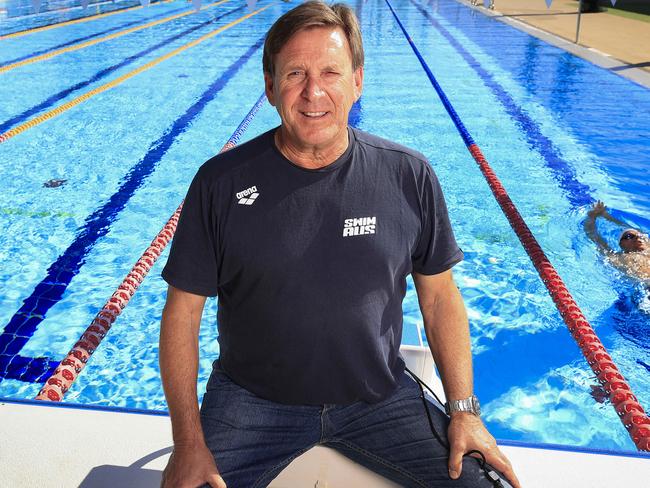
Swimming
Don't miss out on the headlines from Swimming. Followed categories will be added to My News.
As one of the world’s most successful and respected swimming coaches, Michael Bohl has always understood the value of time.
For most of the past four decades, Bohl has spent the majority of his time prowling pool decks, with a stopwatch in his hand, checking and recording the split times of some of Australia’s greatest Olympians.
Now, at 61, “Bohly” – as he’s affectionately known – is calling time on his career, telling this masthead he’s quitting coaching after this year’s Paris Olympics.
He hasn’t ruled out making a comeback but says it won’t be for at least a year, because he needs to step off the hamster wheel to spend more time with his family and just see for himself what else is out there.
“I’ve been coaching 37 years and I’ve never had a break, so I just want to slow down and step away for a while,” Bohl said.
“I’m in no hurry to work out what I want to do so I just want to stop and smell the coffee a little bit for 12 months.
“And then towards the end of the year (2025), I will just start to seriously question whether it is something I want to keep going on with?
“At the moment, I think after 12 months I might be right to go on again but, after 12 months, I might go, ‘Hey, I think I’m done’.”
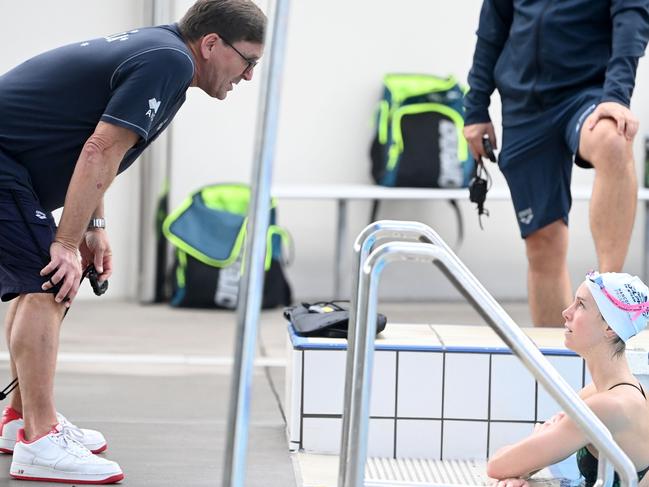
Bohl has already broken the news of his pending departure to his swimmers so they can start thinking about who they will want to train under once he’s gone. Not that any of them are.
Loyal to a tee, their only focus at the moment is the Olympic trials, taking place in Brisbane from June 10-15, which is just where Bohl wants their minds to be.
Australian swimming superstar Kaylee McKeown, who joined the master coach in the hope she could become an even better swimmer after winning three gold medals at the 2021 Tokyo Olympics, said she admired him for prioritising his family.
“He’s getting to the age now where he wants to spend that time with his wife and kids and I think that’s great,” McKeown told this masthead.
“I’m sad I didn’t make the move to him sooner because I’ve learnt so much in such a short period of time and he’s already said to me: ‘I’ll always be here to help if you need a helping hand.’”
If everything goes according to plan, McKeown and Bohl’s other star performers will strike more gold in Paris this year, because he’s a genius at getting his swimmers to peak at the right time.
Bohl’s swimmers have represented Australia at seven of the last eight Olympic Games, going back to Barcelona 1992.
Nine different swimmers have won Olympic medals including four who have collected gold – Stephanie Rice (2008), Emma McKeon (2016, 2021), Madison Wilson (2016) and Emily Seebohm (2021).
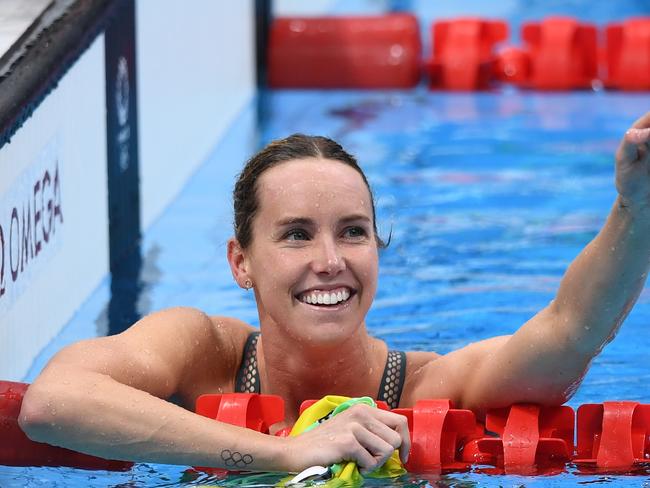
And that’s just the Olympics. Plenty more have won medals at the world championships, Commonwealth Games and Pan Pacs.
“The gratifying part from my end is that the really, really good athletes understand what they’ve got to do to keep improving and raising the bar,” Bohl said.
“There’s a big difference between hoping to go well and being prepared to go well.
“That’s the sign of a champion. They realise they’re human. Some of the kids think they’re bullet proof and they’ve just got to rock up behind the box and get a gold medal? But the really good athletes have got that very strong understanding that if they don’t work well, they’re not going to perform well.”
Although he won’t ever admit it, Bohl was a very good swimmer himself, representing Australia at the 1982 Commonwealth Games in Brisbane. His teammates included Ron McKeon and Susie Woodhouse, who fell in love, married and brought Emma into the world.
Family ties have always been important to Bohl, who was earmarked as a rising star in Queensland swimming from the time he was a kid, even though swimming wasn’t ever his favourite sport.
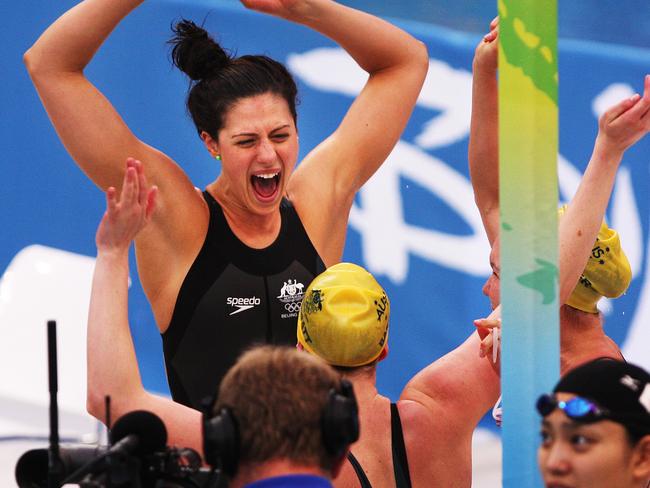
Bohl’s dad George played 1st XV GPS rugby for three years and his son naturally wanted to follow in his footsteps but was prevented from doing so after contracting a rare virus that left him with 10 per cent vision in his left eye.
“My uncle John, who was a doctor, sort of said to my parents, ‘Look, there’s no way this boy can do contact sports’, so swimming was the one thing that we all agreed I could do,” Bohl said.
“I love footy and still follow it and love watching it but that was kind of taken away so I just started swimming and got pretty good at it but I was an average swimmer to be honest with you. I was a worker bee, not a super talent.”
Even so, Bohl got to the cusp of his dream of being an Olympian. He finished second at the Australian trials for the 1980 Moscow Games, which normally would have been enough for a spot, but wasn’t selected to go because a reduced team was picked.
Devastated, he thought about throwing in the towel but decided to have another crack after spending time studying in the United States.
He narrowly missed the team again in 1984, then retired the following year.
Coaching wasn’t his first choice for life after swimming either. He enrolled in teachers’ college and was waiting tables at night to make ends meet when fate intervened again.
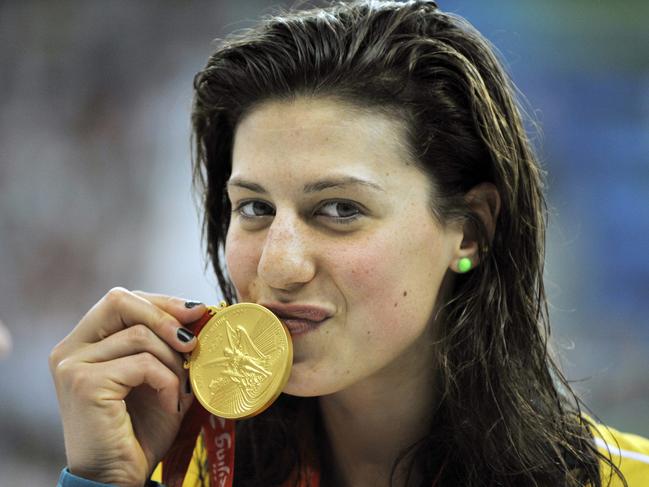
Cheryl Kensett, who taught Bohl to swim when was in primary school, invited him to come along and coach some of the kids at the training centre she and her husband Alan ran.
He was hooked straight away.
“One thing led to another. I could hear my wife whingeing about kids in her class that didn’t want to be there and every person that was at swimming training wanted to be there. So I just thought, do I want to be working with people who don’t want to be there or do I want to be working with people who are aspiring to make Australian teams? So I think I just gravitated towards that,” Bohl said.
“The second year I was coaching, we had someone make the Australian team, so that makes you really feel that turning up for work is worthwhile because you start to feel part of their success.
“So it’s steamrolled from there, one year after another and all of a sudden 37 years have gone past.
“I’m doing something I love doing. I don’t see it as a sacrifice. I feel honoured that I’ve been able to coach and I chose a career path that I initially didn’t have any expectation of doing, but it’s something that I just fell into.
“I feel privileged with the fact that I’m allowed to do what I’ve been doing and it’s been nice to have the little taste of success that we’ve had.
“When you get that little bit of success, it just hooks you in and once you’re hooked in, it’s a very, very hard thing to leave.”
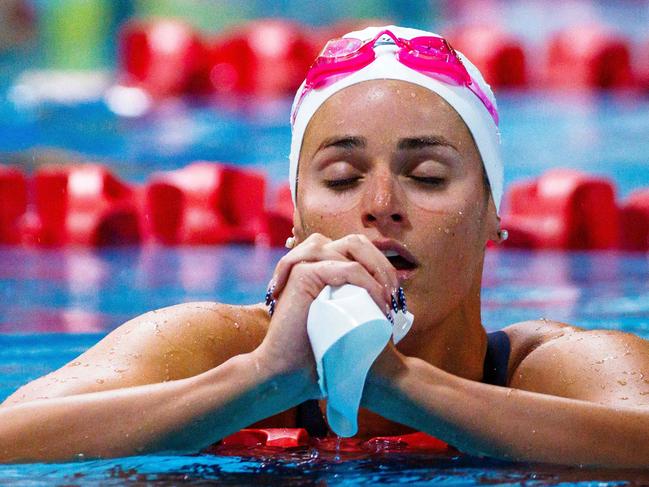
To become one of the best, Bohl learnt from the very best. His mentors were all who’s who of Australian swimming – John Rigby, Bill Sweetenham, Laurie Lawrence, Don Talbot and Denis Cotterell – as well as America’s leading lights, Eddie Reese and Bob Bowman.
He picked up different things from each of them, but the most important lesson of all was getting to know his swimmers as people and showing them empathy.
“You’ve got to realise that they’re all coming from different situations and scenarios,” he said.
“Some are coming from single-parent families. Some are coming from families that have got no money. Some are coming from very affluent families. Some have come from the wrong side of the tracks and you’re trying to get them on the right side of the tracks?
“In a way, you have that feeling of parental care. It’s a very important thing, you’ve got to care for them first as people and second as athletes.
“Think that’s not just a turn of phrase. It’s just important you do really feel like that. A lot of the kids in the last 15 to 20 years, both parents are working, so they’re spending more time with you than they are their parents.
“They’ll even come to you for advice so you’ve got a responsibility and you’ve got to come to the realisation that you are an important person in their life.
“So you’re trying to create an environment in your training program that’s positive and hard working, but it’s also a fun place to be. It can’t be like a concentration camp, it’s got to be hard working and definitely a positive environment where the kids can walk in through that front door and feel like it’s a little sanctuary for them.”
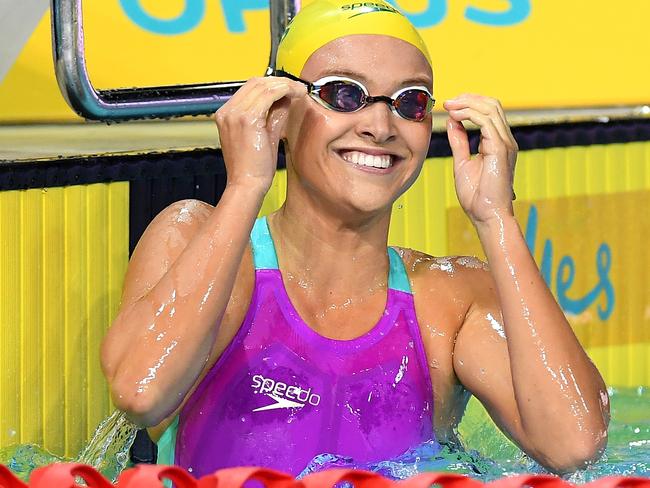
Bohl coached a record nine swimmers who made the team for the 2012 London Olympics but of all the competitors he has helped get to the Olympics, no-one’s achievements have given him as much personal pride as his daughter, Georgia, who made the Australian team for Rio in 2016, then won a gold medal at the Commonwealth Games two years later.
Bohl’s legacy is also being felt in the coaching ranks, too. Dean Boxall, now a star in his own right, worked under Bohl for years.
Boxall is also planning a break after Paris, but he definitely will be back.
Rohan Taylor, Australia’s head coach, hopes Bohl will also return to the pool deck but supports his decision to take a step away and expects him to make a big splash in Paris before checking his stopwatch for the last time.
“I think it’s great. I think it’ll show the way for other coaches to be able to do stuff like that,” Taylor said.
“With his athletes, he’s just exceptional in how he works with them individually and coaches them as a person.
“He’s got that relationship and his ability to build that rapport is exceptional. He just gets their trust.
“When you’re on the pool deck with him, you see how he engages with all the athletes across the session, he knows everything about them.
“Outside of the performances, he just has a great way of managing them.”
More Coverage
Originally published as Legendary Aussie swim coach Michael Bohl reveals plans to retire after the Paris Olympic Games





